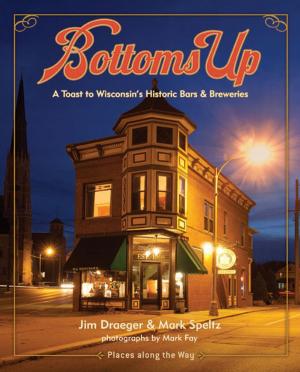| Author: | Frederick Hale | ISBN: | 9780870205514 |
| Publisher: | Wisconsin Historical Society Press | Publication: | March 28, 2013 |
| Imprint: | Wisconsin Historical Society Press | Language: | English |
| Author: | Frederick Hale |
| ISBN: | 9780870205514 |
| Publisher: | Wisconsin Historical Society Press |
| Publication: | March 28, 2013 |
| Imprint: | Wisconsin Historical Society Press |
| Language: | English |
As the Föhn blew the first breaths of spring into the Alps in March 1845, two Swiss men embarked on a circuitous voyage that took them from the impoverished canton of Glarus in eastern Switzerland to the hills of southern Wisconsin. Their mission: to select and purchase a tract of land to which the Swiss government could dispatch part of its excess population. With subscriptions from prospective emigrants totaling about $2,600, Nicholas Dürst and Fridolin Streiff ultimately purchased 1,280 acres of timber and prospective farmland in Green County—land fellow immigrants declared “beautiful beyond expectation,” offering “excellent timber, good soil, fine springs, and a stream filled with fish.” Thus began the colony at New Glarus, Wisconsin, perhaps the most distinctively Swiss settlement in the United States. A mere five years later, Wisconsin boasted 1,224 of the nation’s 13,358 Swiss immigrants.
In this concise introduction to the state’s Swiss settlers, Frederick Hale traces the catalysts for Swiss emigration, their difficult journeys, and their adjustments to life on Wisconsin soil. Updates for this expanded edition include additional historic photographs and the selected writings of John Luchsinger, who settled at the Swiss colony at New Glarus, in 1856.
As the Föhn blew the first breaths of spring into the Alps in March 1845, two Swiss men embarked on a circuitous voyage that took them from the impoverished canton of Glarus in eastern Switzerland to the hills of southern Wisconsin. Their mission: to select and purchase a tract of land to which the Swiss government could dispatch part of its excess population. With subscriptions from prospective emigrants totaling about $2,600, Nicholas Dürst and Fridolin Streiff ultimately purchased 1,280 acres of timber and prospective farmland in Green County—land fellow immigrants declared “beautiful beyond expectation,” offering “excellent timber, good soil, fine springs, and a stream filled with fish.” Thus began the colony at New Glarus, Wisconsin, perhaps the most distinctively Swiss settlement in the United States. A mere five years later, Wisconsin boasted 1,224 of the nation’s 13,358 Swiss immigrants.
In this concise introduction to the state’s Swiss settlers, Frederick Hale traces the catalysts for Swiss emigration, their difficult journeys, and their adjustments to life on Wisconsin soil. Updates for this expanded edition include additional historic photographs and the selected writings of John Luchsinger, who settled at the Swiss colony at New Glarus, in 1856.















